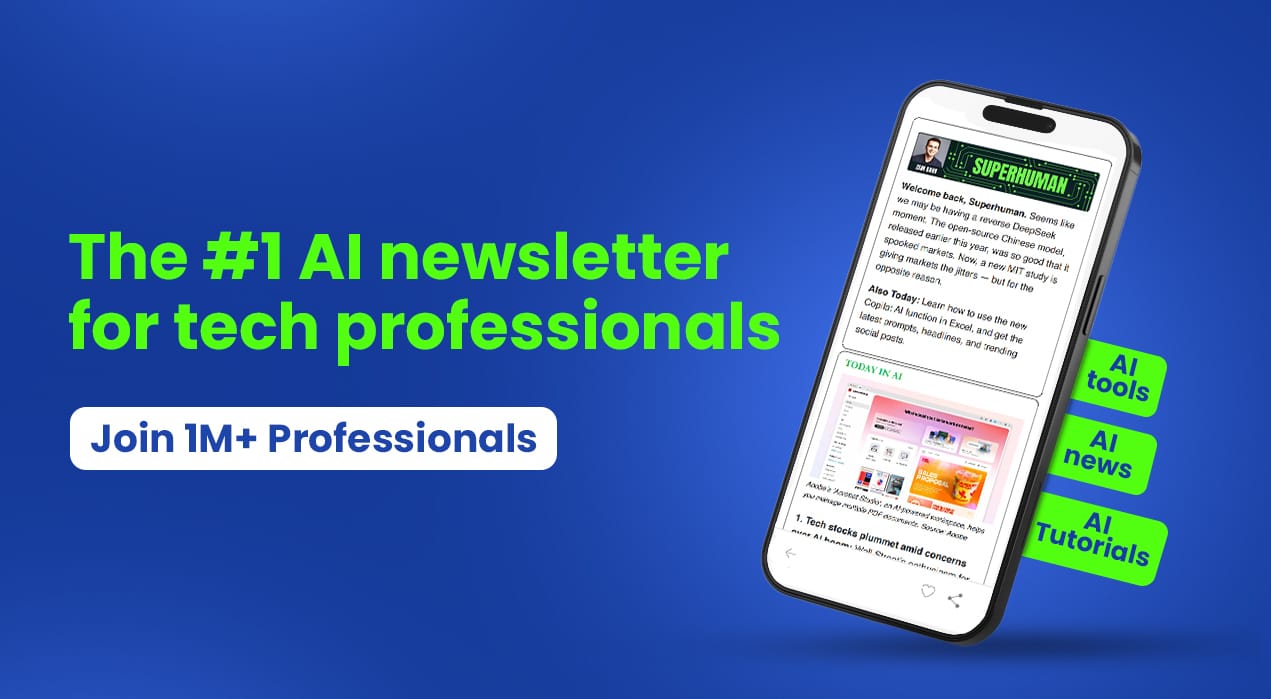- The Supper
- Posts
- Lawmakers Weigh Benefits & Risks of AI in Healthcare
Lawmakers Weigh Benefits & Risks of AI in Healthcare
AI on the Hill
Become the go-to AI expert in 30 days
AI keeps coming up at work, but you still don't get it?
That's exactly why 1M+ professionals working at Google, Meta, and OpenAI read Superhuman AI daily.
Here's what you get:
Daily AI news that matters for your career - Filtered from 1000s of sources so you know what affects your industry.
Step-by-step tutorials you can use immediately - Real prompts and workflows that solve actual business problems.
New AI tools tested and reviewed - We try everything to deliver tools that drive real results.
All in just 3 minutes a day
This week in Washington, lawmakers and health experts came together to unpack a pressing question: How should we be using AI in healthcare—and where do we draw the line?
During a House health subcommittee hearing, the conversation ranged from rural care to regulatory gaps. Here's what was on the table:
🧠 AI Could Lighten the Load for Healthcare Workers
Representative Morgan Griffith (R-VA) kicked things off by spotlighting AI’s ability to cut through red tape. He pointed to AI’s growing role in research—helping speed up drug discovery and clinical trial recruitment—as well as easing administrative headaches like claims processing and documentation.
Less paperwork = more time with patients. That’s the kind of math lawmakers say they like.
🏥 Bridging the Gap in Rural Care
AI could also help reach patients in places where the nearest specialist is hours away. Representative Nick Langworthy (R-NY) said emerging tools are bringing diagnostic support to remote communities. Representative Diana Harshbarger (R-TN) added that pharmacists—often the most accessible healthcare providers in rural areas—could better coordinate with physicians if AI helped streamline data-sharing.
⚠️ But What About Oversight?
Lawmakers across the aisle agreed: AI should assist, not replace, human clinicians. Representative Brett Guthrie (R-KY) summed it up: “Human judgment must remain at the center of care.”
There’s also growing concern that the FDA may not have the right tools to regulate AI systems that constantly evolve. Stanford’s Michelle Mello warned that without tougher post-market surveillance, we risk letting products drift from safe to sketchy after they hit the market.
One of the most heated topics was AI's role in prior authorization—especially in Medicare Advantage. Some insurers use AI to flag claims for denial, which can limit care access while boosting their bottom line.
Mello raised a red flag: Even when humans review AI-recommended denials, they may just rubber-stamp the algorithm’s call. Representative Greg Landsman (D-OH) slammed the current pilot program, warning it could lead to more denials—and more patients getting hurt.


Reply